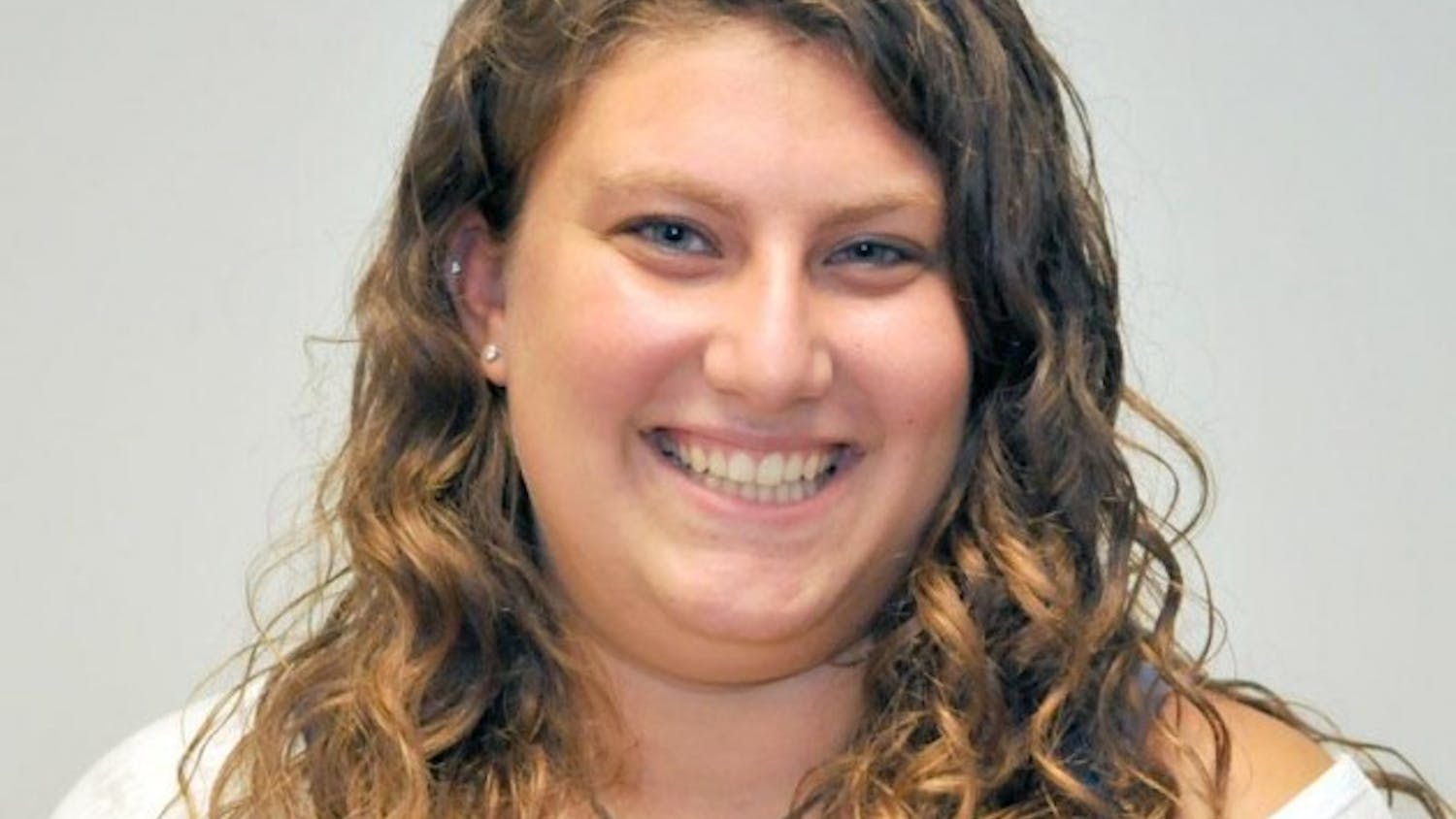Suicide and depression are not easy topics to discuss for most people, but for Jordan Burnham, a professional public speaker on mental health and suicide prevention, the discussion of this murky discourse has become his mission.
Burnham has spoken at universities and schools all over America while making appearances on CNN, Dr. Phil, Good Morning America, and three documentaries. Through UB's Active Minds, an organization that promotes healthy conversation about mental health issues, Burnham delivered his relatable message to stop stigma and promote awareness.
"I think it's important for me to speak on this subject because I was just like any other kid," Burnham said. "I was popular, I was on the sports team, I had girlfriends, I was just like any other kid. But no one had any idea that I had depression; that I had suicidal thoughts that would lead up to a suicide attempt. And so it's important, I think, to kind of put a face to mental health that isn't this gloomy outlook, that every thing's dreary every single day."
Having personally suffered from depression and the repercussions of attempted suicide, the former star athlete is now on the road to recovery and intends to pass on his message in hopes to shed light on the dark emptiness that once threatened to claim his life.
Burnham's depression began to develop around the seventh grade after he moved to King of Prussia, Pa from his hometown of Pittsburgh, Pa to live with his dad who had recently taken a job there. During this time his sister, whom he always turned to as a coping device, went off to college and he found himself with no one to talk to.
This loss of his best friend and confidant caused Burnham to internalize all of his emotion, coping only through sports and girls. This bred a dark spirit of depression and loneliness within him and led him to feel even more like an outcast than he had been as an African American in a predominantly white school.
By the time Burnham got to the ninth grade he was already abusing alcohol – not to get drunk or binge – but in order to cope and express feelings he would otherwise conceal. Things began to worsen as Burnham entered the 10th grade and attempted to get his driver's license. After attempting and failing for the third time, he broke down and cursed and ranted at the driving instructor. Shocked by this outburst, Burnham's father organized a visit from his mom who encouraged him to see a therapist. This led to a diagnosis of depression.
According to Burnham, this diagnosis occurs in one of four college students, many of which never attempt to find help due to the stigma attached to conversations about mental health issues.
"I feel a lot better knowing that other people went through it and are coming out and changing lives…and that there was nothing I could do and that it's actually a disorder," said Rob Golabek, a senior communication major at UB.
Golabek experienced a personal loss of his close friend to suicide.
"Now I have a little bit more knowledge about a topic that was really dark to me and I'm able to spread a message of mental health," Golabek said.
As Burnham progressed throughout high school he continued to suffer silently, keeping his condition to himself, his girlfriend and parents, regressing further and further into the umbra of his mind.
By the time he was a senior, Burnham was having suicidal thoughts daily. With every emotional wound, set back, or disappointment consistent with ordinary teen life, he moved closer to the act of taking his life and leapt off of his ninth story bedroom window.
On Sept. 28, 2007, the day of Burnham's attempted suicide, all seemed normal. He had played in a golf competition and had even done pretty well, but upon returning to his home and being confronted with a duffel bag of alcohol that was found in his trunk, he became intoxicated with guilt. Seeing his parents saddened by his alcohol abuse yet again he just could not handle it. Later that evening he hurled himself out of his window where he fell nine stories; shattering and breaking his pelvis, left fibular, jaw, and wrist.
Miraculously, Burnham survived this ordeal and saw a new light that could help him cope and combat the persistent shadow that was his depression. Now he understands that in spreading the word about his disorder and other mental health disorders, he would be able to help others and possibly prevent someone else from enduring the lonely path he once walked.
"[Burnham has] an amazing story and [he] definitely changed at least one life today," Golabek said.
Golabek approached Burnham after the speech and shared his experience. Other students also found his message enlightening.
"[Burnham's] message was very relatable," said Cory Knox, senior urban planning major. "My brother just broke up with his girlfriend…and he's acting like a different person and I'm trying to figure out what I can do to help him and how I can talk to him. Some of the things [Burnham] was talking about are definitely helpful and are going to help my approach."
Burnham's message, profound and inspiring, has done its job. He inspired many UB students to engage this issue with their full attentions.
"I think that the message that I really want to spread is that it's okay to talk about what you're going through. Mental health is just stigmatized and I just ask why," Burnham said.
Now, armed with this knowledge, some of the UB community can reveal this dark issue to the light of the public and get people to continue the conversation.
Email: features@ubspectrum.com



